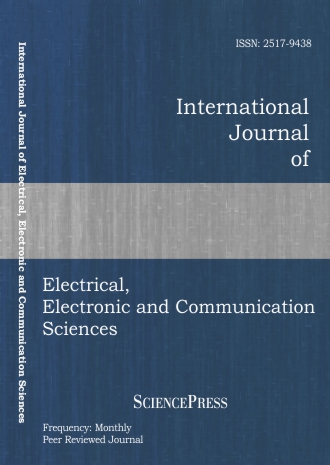
Scholarly
Volume:4, Issue: 4, 2010 Page No: 740 - 746
International Journal of Electrical, Electronic and Communication Sciences
ISSN: 2517-9438
Solver for a Magnetic Equivalent Circuit and Modeling the Inrush Current of a 3-Phase Transformer
Knowledge about the magnetic quantities in a magnetic circuit is always of great interest. On the one hand, this information is needed for the simulation of a transformer. On the other hand, parameter studies are more reliable, if the magnetic quantities are derived from a well established model. One possibility to model the 3-phase transformer is by using a magnetic equivalent circuit (MEC). Though this is a well known system, it is often not an easy task to set up such a model for a large number of lumped elements which additionally includes the nonlinear characteristic of the magnetic material. Here we show the setup of a solver for a MEC and the results of the calculation in comparison to measurements taken. The equations of the MEC are based on a rearranged system of the nodal analysis. Thus it is possible to achieve a minimum number of equations, and a clear and simple structure. Hence, it is uncomplicated in its handling and it supports the iteration process. Additional helpful tasks are implemented within the solver to enhance the performance. The electric circuit is described by an electric equivalent circuit (EEC). Our results for the 3-phase transformer demonstrate the computational efficiency of the solver, and show the benefit of the application of a MEC.